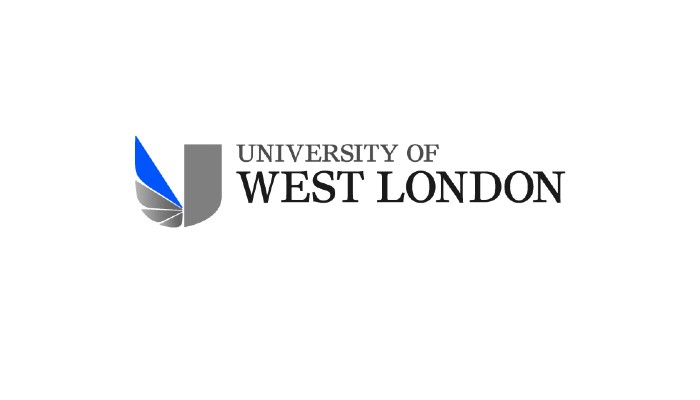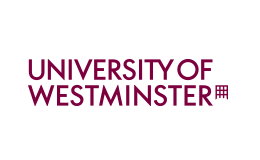Studying Policing Abroad: A Gateway to Global Law Enforcement Careers
Embark on an exciting journey into the world of policing with international education tailored for Indian students. Studying Policing abroad opens doors to advanced knowledge in crime prevention, law enforcement, and public safety, equipping you with skills that are in high demand worldwide.
What is Policing?
Policing is a dynamic field that combines elements of criminology, law, sociology, and public administration. It focuses on the study of police operations, criminal justice systems, ethical practices, and community engagement. For Indian students, pursuing a degree in Policing abroad means gaining exposure to diverse legal frameworks and modern policing techniques that go beyond traditional Indian contexts.
Whether you're passionate about fighting crime, ensuring community safety, or shaping policy, this course prepares you to become a leader in law enforcement. Universities abroad, especially in countries like the UK, USA, Australia, and Canada, offer Policing programs that emphasize practical training, research, and international perspectives—ideal for students aiming to return to India with global expertise or pursue careers overseas.
Why Study Policing Abroad as an Indian Student?
India's law enforcement sector is evolving rapidly, with increasing needs for skilled professionals in cybercrime, urban policing, and human rights. Studying abroad provides:
- Global Exposure: Learn from advanced systems in countries with low crime rates and innovative policing strategies.
- Practical Experience: Access internships, simulations, and fieldwork not always available in India.
- Career Boost: International degrees are highly valued by Indian police services, private security firms, and NGOs.
- Cultural Diversity: Understand multicultural policing, crucial for India's diverse society.
- Scholarships and Support: Many universities offer funding for Indian students, easing financial burdens.
With India's growing emphasis on smart policing and international collaborations (like with Interpol), a foreign qualification in Policing can fast-track your career in the Indian Police Service (IPS) or global organizations.
Course Overview
Policing programs typically range from undergraduate (BSc/BA in Policing or Criminology) to postgraduate (MSc/MA in Policing Studies) levels. Duration varies: 3-4 years for bachelor's and 1-2 years for master's. These courses blend theory with hands-on learning, often including modules on evidence-based policing and counter-terrorism.
Key Objectives:
- Develop critical thinking on police accountability and ethics.
- Analyze global crime trends and response strategies.
- Build skills in investigation, risk assessment, and leadership.
For Indian students, these programs often include electives on comparative policing, allowing you to study how systems in the UK or USA can inform Indian reforms like the Police Act 2002.
Curriculum Highlights
The curriculum is designed to be comprehensive, covering foundational and specialized topics. Here's a breakdown of typical modules:
| Module | Description | Relevance for Indian Students |
|---|---|---|
| Introduction to Criminology | Explores causes of crime, victimology, and societal impacts. | Helps understand urban crime in cities like Mumbai or Delhi. |
| Police Operations and Management | Covers patrol strategies, resource allocation, and leadership in law enforcement. | Applies to India's community policing initiatives like 'Janamaithri' in Kerala. |
| Criminal Justice Systems | Comparative study of legal frameworks across countries. | Compares IPC (Indian Penal Code) with international laws. |
| Ethics and Human Rights in Policing | Focuses on police conduct, corruption prevention, and rights protection. | Addresses challenges like custodial deaths and police reforms in India. |
| Cybercrime and Digital Forensics | Investigates online threats, data analysis, and digital evidence handling. | Critical for India's rising cybercrimes, with tools for CBI or cyber cells. |
| Counter-Terrorism and Intelligence | Studies threat assessment, surveillance, and international cooperation. | Relevant to India's National Investigation Agency (NIA) operations. |
Advanced programs may include research projects or dissertations on topics like "Policing in Post-Colonial Societies," allowing Indian students to explore their own context through a global lens.
Skills You'll Gain
By the end of your Policing degree, you'll acquire a toolkit of transferable skills:
- Analytical Skills: Interpreting crime data and predicting patterns using tools like GIS mapping.
- Communication: Report writing, public speaking, and cross-cultural negotiation—vital for liaising with diverse communities in India.
- Practical Expertise: Scenario-based training in arrests, interviews, and crisis management.
- Ethical Decision-Making: Navigating dilemmas in high-stakes environments.
- Research Proficiency: Conducting independent studies, useful for policy advocacy in India.
These skills not only prepare you for policing roles but also for related fields like corporate security, risk consulting, or academia.
Career Opportunities
A degree in Policing abroad unlocks diverse pathways, especially for Indian graduates:
- In India: Entry into IPS via UPSC exams with an edge; roles in state police, intelligence bureaus, or private firms like G4S.
- Abroad: Opportunities in international police forces (e.g., UK Metropolitan Police for skilled migrants) or UN peacekeeping missions.
- Emerging Sectors: Cybersecurity analyst, forensic expert, or policy advisor for NGOs like Amnesty International.
- Salary Prospects: In India, starting salaries for police officers range from ₹50,000-₹1,00,000/month; abroad, up to $60,000/year for entry-level roles.
Many alumni return to India to lead reforms, such as implementing community-oriented policing inspired by foreign models.
Top Universities Offering Policing Programs
Here are some renowned institutions popular among Indian students:
- University of Leicester, UK: MSc in Security, Conflict and International Development—strong focus on global policing.
- University of Portsmouth, UK: BSc (Hons) in Policing Studies—includes professional body accreditation.
- Monash University, Australia: Bachelor of Criminology and Criminal Justice—emphasizes practical simulations.
- University of Toronto, Canada: MA in Criminology and Sociolegal Studies—research-oriented with scholarships for internationals.
- John Jay College of Criminal Justice, USA: BS in Criminal Justice—hands-on training in a diverse urban setting.
These universities often have partnerships with Indian institutions, facilitating credit transfers or exchange programs.
Entry Requirements for Indian Students
Admission is straightforward but competitive. Typical requirements include:
- Academic: 10+2 with 60%+ for undergrad; Bachelor's with 55%+ for postgrad (equivalent to UK 2:2).
- English Proficiency: IELTS 6.0-6.5 or TOEFL 80+ (waived for some if educated in English).
- Other: Personal statement, references, and sometimes entrance tests like GRE for US programs.
- Visa: Student visas (Tier 4 for UK, F-1 for USA) require proof of funds (₹10-15 lakhs) and acceptance letter.
Indian students benefit from streamlined processes; consult education agents for guidance.
Application Tips and Next Steps
To succeed:
- Research Early: Deadlines are September/January intakes; apply 6-12 months in advance.
- Funding Options: Explore GREAT Scholarships (UK), Endeavour Awards (Australia), or university bursaries—up to 50% tuition coverage.
- Prepare Documents: Get transcripts attested by AIU; highlight extracurriculars like NCC or debate for a strong profile.
- Network: Join forums like Study UK India or attend virtual fairs for insights from alumni.
Tuition fees range from ₹15-30 lakhs/year, but post-study work visas (2 years in UK/Australia) allow you to recover costs through employment.
Ready to take the first step? Studying Policing abroad isn't just an education—it's a commitment to safer communities worldwide. Contact our advisors for personalized guidance on your study abroad journey.




